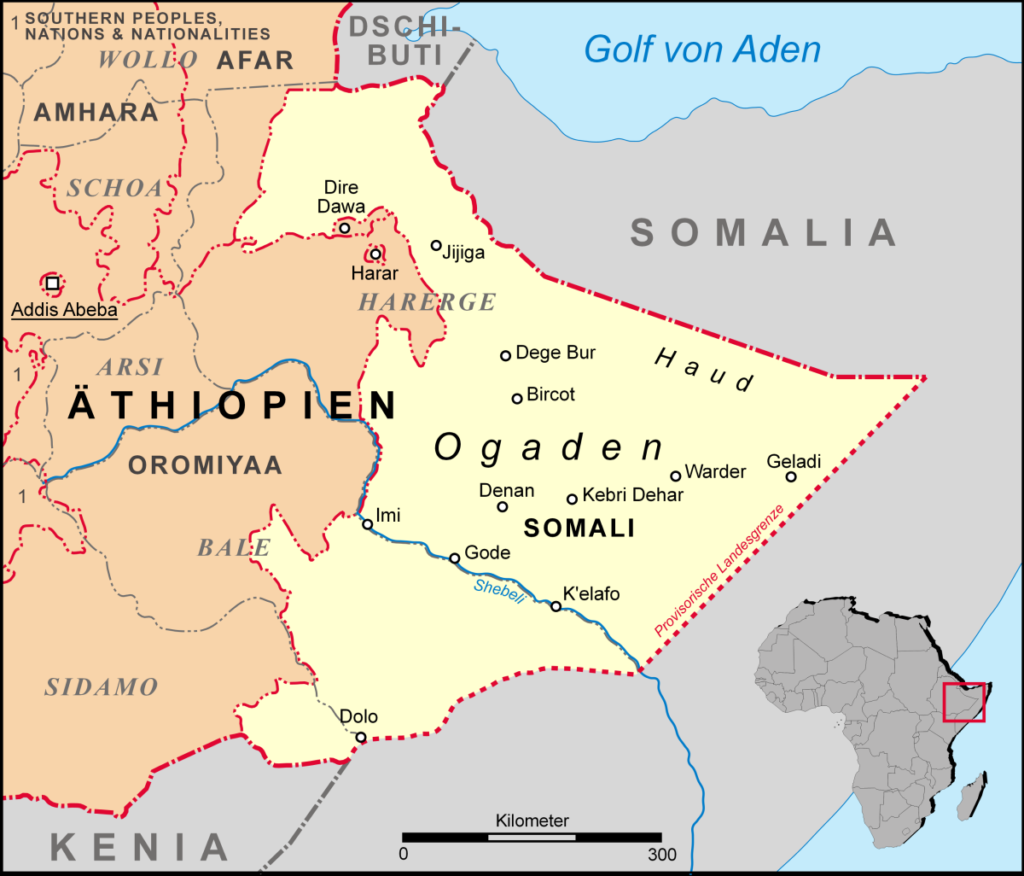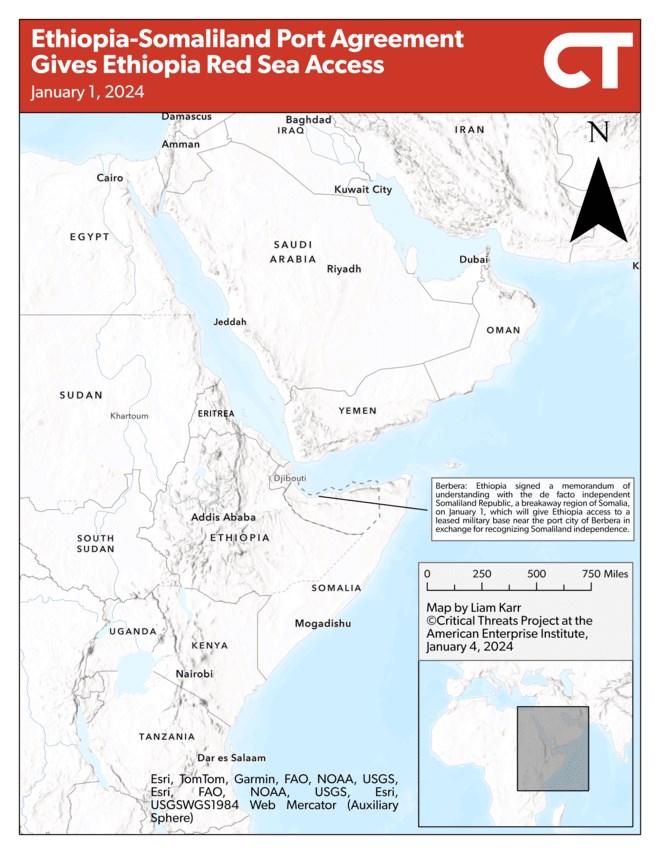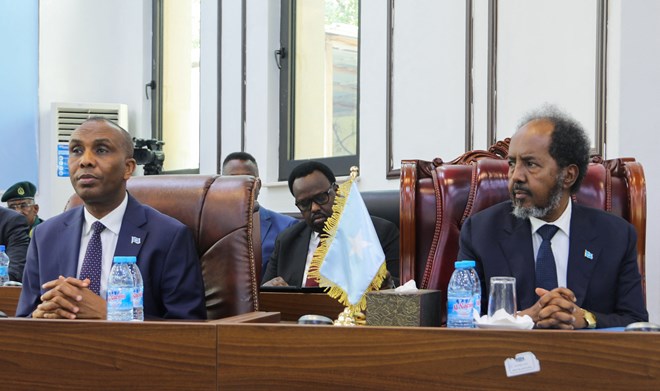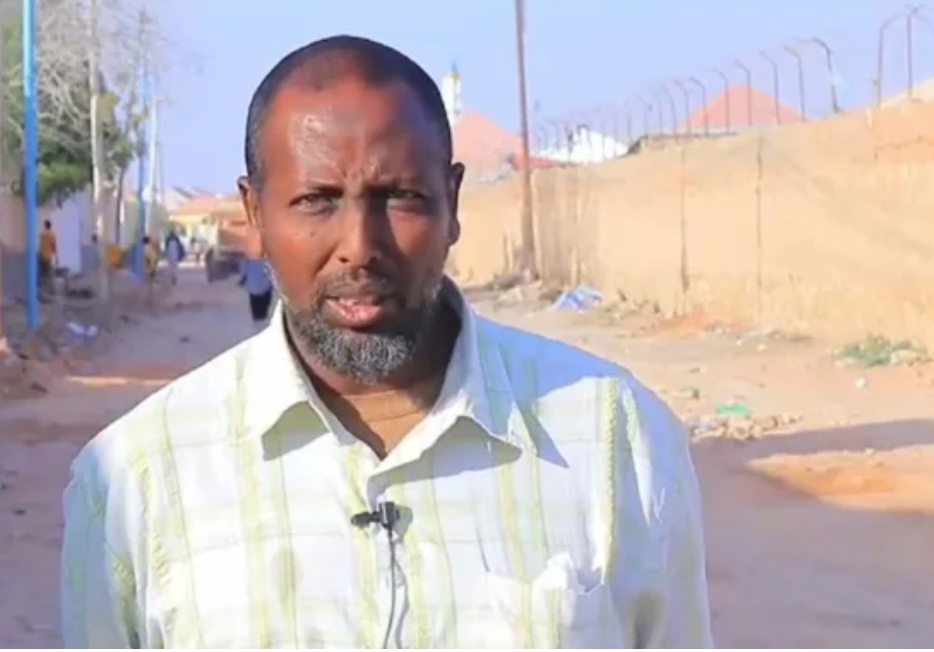Share the post "Ethiopia-Somaliland port deal strains Horn of Africa counterterrorism; shifts Red Sea Geopolitics.."
Ethiopia signed a memorandum of understanding with the de facto independent Somaliland Republic, a breakaway region of Somalia, to lease a naval port that will give it Red Sea access in exchange for formally recognizing Somaliland. The port deal has severely strained Somali-Ethiopian relations and increased anti-Ethiopian sentiment in southern Somalia, which will likely weaken regional counterterrorism cooperation and energize Shabaab militia…
Ethiopia’s African Red Sea neighbors in Djibouti, Egypt, and Eritrea will likely view an Ethiopian base as a threat, while the United Arab Emirates’ (UAE) strong ties with the Ethiopian government will strengthen the Emiratis’ position in its regional rivalry with other Gulf countries, such as Saudi Arabia and Qatar.

Ethiopia signed a memorandum of understanding with the de facto independent Somaliland Republic, a breakaway region of Somalia, on January 1, which will give Ethiopia access to the Red Sea in exchange for recognizing Somaliland independence. Ethiopian Prime Minister Abiy Ahmed described Red Sea access in July and October 2023 as an existential issue and “natural right” that Ethiopia would fight for if it could not secure it through peaceful means.

[1] The memorandum of understanding grants Ethiopia access to a leased military base near the port city of Berbera along Somaliland’s coast on the Gulf of Aden.
[2] The port will give Ethiopia access to Red Sea shipping lanes via the Bab al Mandeb strait between Djibouti and Yemen that connects the Red Sea and the Gulf of Aden, Economic issues are a significant driver of Abiy’s move to secure the deal. The Ethiopian economy has struggled since the COVID-19 pandemic in 2020 and the two-year civil war that ended in 2022 and related sanctions.
[3] This has led Ethiopia to make multiple debt relief requests since 2021 and default on bond payments in December 2023.
[4] Ethiopia also pays at least $1 billion in port fees annually to Djibouti.
[5] Abiy asked Djibouti to reduce the fees in 2022
[6] Djibouti declined, however, because its economy relies on rents and services secured from Ethiopian shipping fees. Djibouti’s port handles 95 percent of inbound and outbound trade from Ethiopia.
[7] The logistics surrounding this trade drive Djibouti’s services sector, which accounts for almost 76 percent of Djibouti’s gross domestic product.
[8] The Somaliland president and Ethiopian foreign minister said that Ethiopia would formally recognize Somaliland and give Somaliland a proportional stake in Ethiopian Airlines in return for the base.
[9] However, the Ethiopian government’s official readout of the deal was less committal and said that Ethiopia would “make an in-depth assessment towards taking a position regarding the efforts of Somaliland to gain recognition.
[10] Taiwan is the only country that has formally recognized Somaliland’s independence from Somalia since Somaliland declared autonomy in 1991, although Somaliland has significant diplomatic and economic relations with numerous countries




